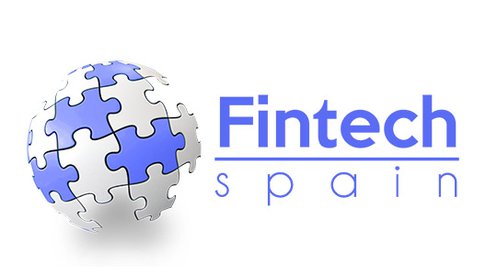-50% Discount on place reservation for 26/27 intake until February 28th!
Master in Financial Management
The Master in Financial Management has the support of Fintech Spain, and is the only postgraduate course on which you'll use the Refinitiv tool, software that provides financial solutions in the areas of trading, investment, consultancy, risk and wealth.
On this master's programme you'll learn how to make financial decisions in unpredictable global environments, applying data visualisation and extraction tools and financial technologies such as Cognos Analytics, Tableau, Big Data and Fintech.
In addition to mastering taxation, management, financial planning, liquid assets, M&A processes, private equity, venture capital, VaR methodologies and other financial risk analysis concepts, your management profile will be enhanced with cross-cutting skills such as strategic communication and influential leadership.
Official degree issued by Universidad Europea de Madrid
| Campus-based | Alcobendas | 9 months, 60 ECTS | Start: October 2026 | Faculty of Economics, Business and Communication Sciences |
Boost your career by studying in Spain!
Digital platforms
The only master's degree where you learn about financial management, investment assessment, risk analysis and control with the Refinitiv tool, software that provides financial solutions in the areas of trading, investment, consultancy, risk and wealth. Furthermore, you'll be able to use this tool throughout the master's programme outside scheduled class hours so that you can practice and strengthen your conceptual knowledge.
Testimonials
Study plan
Syllabus
Programa de estudios
PRIMER CURSO
| Materia | ECTS | Tipo | Idioma de impartición |
|---|---|---|---|
| Module I. Financial Management and Financial Markets | 6 | Compulsory | English (En) |
| Module II. Financial Planning and Management Control Technologies | 6 | Compulsory | English (En) |
| Module III. Financial Management and Investment Assessment | 6 | Compulsory | English (En) |
| Module IV. Corporate Financial Taxation | 6 | Compulsory | English (En) |
| Module V. Corporate Asset Management | 6 | Compulsory | English (En) |
| Module VI. Corporate Finance | 6 | Compulsory | English (En) |
| Module VII. Risk Analysis and Control Tools | 6 | Compulsory | English (En) |
| Module VIII. Finance and Information Management (Big Data, Business Analytics, Fintech) | 6 | Compulsory | English (En) |
| Module IX. Professional Internships | 6 | Compulsory | English (En) |
| Module X. Final Master’s Project | 6 | Compulsory | English (En) |
Study plan structure
Module I. Financial Management and Financial Markets (6 ECTS credits)
In the first term, you'll study the modules that will allow you to understand finance's role within the business environment and corporate strategy, as well as to debate and reflect on the importance of domestic and international regulatory systems, in particular the regulation of financial instruments (MiFID II).
- Macroeconomic environment and international finance.
- International financial system: structure of financial markets, money and foreign exchange markets.
- International regulation: application and implications in the financial sector.
- European Union regulation: introduction to the regulation of markets in financial instruments (MiFID II).
- Markets in financial instruments: areas where MiFID II regulation applies.
- Financial products: complex and non-complex.
Module II. Financial Planning and Management Control Technologies (6 ECTS credits)
Gain a comprehensive understanding of the objectives of financial planning, and to adapt/apply technological tools for managerial control.
- Strategic management and planning: nature and process of strategic management, main tools used in strategic planning.
- Short-term financial planning: concept, objectives, approaches, elements, methods, processes and tools.
- Strategic (long-term) financial planning: concept, objective, methods, processes and financial models.
- Budgets: master, operational, investment, treasury.
- Management control: concept, objectives, characteristics, principles, tools.
- Management control: instruments for measuring company management
performance for decision-making purposes.
Module III. Financial Management and Investment Assessment (6 ECTS credits)
Understand and analyse the macroeconomic situation, international and intervening financial markets, analysis of financial statements, investment analysis and valuation of financial assets in unpredictable global environments for decision-making purposes.
- Analysis of a company's economic and financial structure: analysis and interpretation of the company's financial information to support decision-making.
- Investment analysis: estimation of accounting and free cash flows, criteria (net present value/return), sensitivity analysis and scenarios.
- Project assessment: real options.
- Valuation of financial assets and companies.
- Portfolio theory: risk and return, risk diversification, market risk measurement.
- Portfolio theory: optimal portfolio model.
Module IV. Corporate Financial Taxation (6 ECTS credits)
Analyse tax planning, investment management and tax optimisation strategies in order to be able to make decisions that will improve company performance.
- Tax environment: knowledge of tax provisions, the different tax systems.
- Tax planning: concept, relevance, indicators and methodologies.
- Strategic tax planning: maximising disposable income, minimising costs.
- Investment management: tax incentives for investment, sensitivity analysis and tax rates.
- Tax optimisation strategies: through financial options (deferral of capital gains, wash sale rule, combined strategies).
- Legal tax planning: tax aspects and limitations.
Module V. Corporate Asset Management (6 ECTS credits)
Draft the necessary corporate asset management reports, using the existing technological tools in this field that facilitate decision-making with regard to the management of surpluses/deficits at the domestic and international levels.
- Asset management: concept, cash flows, systems and technological management tools.
- Treasury budget: control of receipts and payments and managing a company’s liquidity.
- Cash flow statement: resources generated by the company, methods of preparation.
- Management of cash surpluses and deficits, investment and financial instruments.
- Asset management and corporate finance at international level.
- Credit management and payment default management.
Module VI. Corporate Finance (6 ECTS credits)
In the second term, the aim is for students to be able to understand the forms of financing (internal and external) that exist at the domestic and international levels, analysing their impact on a company’s financial structure.
- Financial asset valuation model: valuation models (CAPM, APT).
- Cost of capital: weighted average cost of capital (WACC).
- Application of the CAPM model: asset and debt betas (financial risk).
- Financial leverage: tax savings and the value of a leveraged company.
- Discriminant analysis: financial forecasting methods (Altman model, Ohlson model).
- Dividend policy: dividend decisions, Gordon's model, PER, dividend payouts, the irrelevance and relevance of dividend policy.
Module VII. Risk Analysis and Control Tools (6 ECTS credits)
Understand inorganic growth/corporate restructuring strategies and whether these are in line with corporate strategy, as well as identify financial business risks and how to apply of hedging strategies to address them.
- M&A processes: criteria, planning, valuation.
- Private equity and venture capital: venture capital, shareholding.
- Identification, analysis, control and management of the different types of business risk.
- Financial market risk and VaR methodologies. 5. Credit risk, scoring and rating agencies.
- Hedging strategies, financial products for risk hedging: futures, options, swaps, FRAs, foreign exchange insurance, etc.
Module VIII. Finance and Information Management (Big Data, Business Analytics, Fintech) (6 ECTS credits)
To become qualified in the use of technological and IT tools for extracting financial information from databases (Big Data), business analytics techniques in corporate positioning and the use of fintech financial tools for financial decision-making in unpredictable global environments.
- Importance and contribution of Big Data: exploitation for commercial purposes, strategies and positioning.
- Data Visualisation: visualisation tools (Cognos, Tableau).
- Analytical techniques in business analytics: decision making in business analytics.
- Business analytics in finance: how to apply a business analytics project to the financial field.
- Fintech: introduction, regulation of financial technologies, functional fintech areas.
- Basic fintech areas: payment methods (currencies), financing, financial infrastructure (mobile banking), cryptocurrencies, crowdfunding and crowdlending.
Module IX. Professional Internships (6 ECTS credits)
Additionally, during the second term students will begin their professional internship at a firm in the financial sector, where they will put the knowledge they have acquired into practice in a real business environment.
- Practical application of the content and skills acquired. Students will undertake professional tasks with the guidance of a supervisor or business tutor and an academic tutor, who will oversee the process of introduction to the practical application of the skills and content taught in the programme.
Module X. Final Master’s Project (6 ECTS credits)
Finally, Module 10 is dedicated to the Final Master's Project. It entails the individual preparation of an original project that the student will publicly present before a panel of judges in order to obtain their master's degree. The curriculum is designed taking into account (explain in a reasoned and coherent way the order of the subjects each term, especially the professional internships and the Final Master's Project).
- Structure and preparation of the Final Master's Project.
- Analysing data and of sources of information.
- Identifying impact journals.
- Reference management tools.
- Written and oral communication skills.
- Management and negotiation skills.
Professional internships
Internships in companies are a key element in your training. Gaining experience after what you have learned in your degree is the best way to enter the job market. There are two types of internships: curricular (included in your study plan) and extracurricular (those you can do voluntarily).
The company and the internship tutor monitor these internships. The activities will be coordinated by the university tutor responsible for the external academic internships at the UEM, who will coordinate with the person directly responsible for the student in the company for the external academic internship. The tutor is also the student's tutor for professional questions or concerns. The tutor will be responsible for issuing the evaluation report based on the information provided by the company and the report on external academic practices carried out by the student.
You can do extracurricular internships to improve your work experience before completing your university training. You can do them in any course, but we would like to remind you that internships are a training complement to your studies. Therefore, the more knowledge you acquire throughout your degree, the more benefit you will get from the internship experience.
Number of places for incoming students
80.
Programme implementation
2024 / 2025.
Student Profile
The Master in Financial Management is recommended for professionals with several years of experience, or those who hold degrees in business administration and management, economics, actuarial and financial sciences, business sciences, accounting and finance, or their equivalents abroad.
Employability
Career opportunities
The master's programme will equip you with the knowledge and skills that will allow you to perform competitively in financial, credit and insurance sectors, both traditional and emerging, such as the InsurTech and Fintech sectors, as well as in company financial departments, consultancy and auditing.
You’ll be trained to take on the following roles:
- Financial Director | Chief Financial Officer (CFO).
- Director of Administration and Finance.
- Bank Executive.
- Insurance Company Executive.
- Chief Treasury Advisor, Agent or Financial Representative.
- Investment Advisor for Organisations or Endowment Funds.
- Work in Securities and Brokerage Firms or Portfolio Management.
Admissions
Start your future at Universidad Europea
You can become a student at Universidad Europea in three easy steps.
1
Admission exams
Start your admission process by calling +34 918257503 or request information and our advisors will contact you.
2
Place reservation
Once you have been admitted, secure your place by paying the reservation fee.
3
Enrollment
Submit the required documents to formalise your enrollment.
Scholarships and financial aid
We want to help you. If you want to study at Universidad Europea, you will have at your disposal a wide selection of own and official scholarships.
Credit recognition and transfers
You don’t have to stick with something you don’t like. That’s why we’ve designed specific plans for credit recognition and transfers.
Request your online credit recognition review, transfer your academic file and start studying at Universidad Europea.
Entry requirements
- An official Spanish university level qualification, or one issued by a higher education institution in another member state within the European Higher Education Area.
- Qualifications from educational systems outside the European Higher Education Area do not require validation, but the university will verify that they provide evidence of a level of educational attainment corresponding to official Spanish university qualifications and are recognised as allowing access to postgraduate study in the issuing country.
Faculty
Our teaching staff
- Hubert Joo Kitano
Director of the master
Dr. Hubert Joo Kitano is a seasoned educator and finance professional with over 20 years of experience in teaching, financial management, and entrepreneurship. Holding a Ph.D. in Entrepreneurship and Management, he is an international lecturer who has taught at prestigious institutions across multiple countries, including Spain, Germany, Denmark, Belgium, Luxembourg, and Vietnam, bringing a global and multicultural perspective to his teaching. With extensive experience working with international students and stakeholders, he excels in creating inclusive, impactful learning environments. Hubert has managed portfolios exceeding $25 million and leads sustainability initiatives such as reforesting endangered native species in Peru. He empowers students and organizations and combines academic excellence, practical expertise, and a deep commitment to education, sustainability, and innovation. - Dra. (c) Josefina Bengoechea
Graduated in Business Administration from Universidad Pontificia Comillas (ICADE) and holds a Master’s in International Affairs with a specialization in International Finance and Business from Columbia University, New York. Currently pursuing a PhD in Education at the University of Wales Trinity Saint David, focusing on the impact of the Fourth Industrial Revolution on higher education.
Josefina has a distinguished career combining academia and financial expertise. She served as Vice President at Bank of America Merrill Lynch, spearheading wealth management strategies for high-net-worth clients across Europe, achieving significant growth in assets under management. As a professor, she has taught at prestigious institutions such as CUNEF, Universidad Europea, and Geneva Business School, specializing in international finance, risk management, and financial markets.
She has authored and co-authored numerous research papers on the influence of emerging technologies, including artificial intelligence and the metaverse, on education and business. Josefina is also a strategic advisor for sustainability initiatives and women's empowerment projects. Her interdisciplinary and global perspective uniquely combines practical expertise, social impact, and academic excellence. - Pablo Taberna
An MBA graduate from Babson College (Massachusetts) and a Bachelor of Business Administration from Universidad Complutense de Madrid, Pablo Taberna has over 20 years of experience in Private Debt, Private Equity, and Venture Capital. He is currently the Managing Partner at Spirius Capital, leading a €150 million private debt fund that has achieved gross returns of over 15% for investors.
Pablo has been involved in more than 20 investment projects across industries such as healthcare, technology, retail, and engineering services. He has a proven track record in originating and executing business opportunities, transaction structuring, and portfolio management. Previously, he served as Managing Partner at Vector Partners in Mexico, where he managed a $120 million debt fund and successfully led its IPO.
Certified in ESG by the CFA Institute, Pablo has held board positions in various companies, advising on corporate development strategies, governance, and value creation. His approach blends strategic and financial expertise with leadership in high-performing international teams. He is dedicated to driving sustainable growth and value creation within organizations. - Marta Gómez-Tembleque Romillo
Double degree holder in Law and Business Administration from Universidad Autónoma de Madrid, with a Master’s in Tax Advisory from IE Business School. Marta has over 15 years of professional experience in tax advisory and international tax planning.
She serves as Tax Manager at Auren Legal, providing comprehensive tax advice to individuals and corporations, focusing on high-net-worth individuals and international tax planning. Previously, she led her consultancy, Gómez-Tembleque Asesores, and worked in the Deals-M&A department at Landwell-PwC, advising on corporate restructuring and conducting tax due diligence.
Marta combines her professional expertise with academic roles. She teaches International Taxation in master's programs at CUNEF and Centro de Estudios Garrigues and Tax Systems I & II in the bilingual Business Management degree program at CEU San Pablo University. She is fluent in French and has advanced English skills. She is recognized for her deep knowledge of international tax systems and her ability to align tax strategies with complex business objectives. - Enrique Marquina Pérez
Law graduate from Universidad Complutense de Madrid and MBA from IE Business School, with over 30 years of experience in corporate finance, investment banking, and risk management. Enrique has held leadership positions, including General Manager and Head of Clients and Products at ING Bank Spain, managing assets exceeding €7 billion and overseeing multidisciplinary teams in areas such as M&A, structured finance, and investment banking.
Currently, Enrique is a Managing Partner at EMPG Partners, a boutique corporate finance firm with an international focus that specializes in M&A, debt restructuring, and equity fundraising. He has acted as a financial expert in high-profile arbitration cases and is known for his expertise in crafting strategic financial solutions for organizations.
Enrique also shares his knowledge as an Associate Professor at Universidad Europea and IE Business School, where he teaches corporate finance and investment analysis to international students. Fluent in Spanish, French, and English, Enrique combines his extensive professional experience with his passion for education, bringing practical insights to the classroom and fostering the next generation of financial leaders. - Andrea Daniel Alonso-Bernaola Ruiz
Andrea holds a Bachelor's Degree in Electrical Engineering from Universidad Carlos III de Madrid, complemented by international academic exchanges at Hanyang University (South Korea) and Politechnika Wrocławska (Poland). She furthered her expertise with Master's degrees in Data Science, business Analytics, and Cybersecurity from IMF Business School. Andrea is proficient in multiple programming languages, including Python, R, and SQL, and has expertise in blockchain, cybersecurity, and Web3 technologies.
Andrea serves as CEO and Co-founder of the Business Angel NFT Club (BANC), a tokenized investment club supporting early-stage startups. Since its inception, she has successfully led investments in 13 startups across Spain. Additionally, she is a Blockchain Lecturer at Esden Business School, where she integrates her technical knowledge with real-world applications in MBA programs.
Andrea's professional journey includes roles such as Splunk & ArcSight Consultant at Telefónica, Junior Delivery Analyst at Deloitte, and Ambassador for HeliHost GmbH & Co KG, where she contributed to various crypto mining projects. Beyond her technical and entrepreneurial endeavors, she is deeply committed to social impact through her work with NGOs, coordinating events and construction projects to support needy communities. Fluent in Spanish, English, and Mandarin Chinese, Andrea is recognized for her innovative approach, leadership, and ability to drive technological advancements. - Belkis Reyes-Fernandez
Belkis Reyes-Fernandez is a seasoned professional with over 15 years of experience in finance, strategy, and organizational development. She has held executive positions at Citi, including President of Citi Valores Asesora de Inversión and Vice President of Wealth Management Offshore Business, where she led operations, compliance, and institutional relations. Belkis brings strong experience in financial environments, including leadership roles in startups such as DeudaFix and Unify, combining entrepreneurial insight with corporate discipline. She holds an MBA in Finance from Suffolk University and a Bachelor’s degree in Economics from UMass Boston, reflecting a strong academic background that complements her solid senior-level expertise in strategic and financial management.
Frequently Asked Questions
What are the functions of financial management?
Financial management, as its name indicates, is a professional or group of professionals responsible for analysing finances within a company or organisation, to guarantee their proper functioning. This control must be overseen by the financial director or CFO and normally covers different areas:
- The financial area: Manages the company's financial and accounting strategy.
- The administrative and legal area: indicates business plans and establishes financial management processes. They are also responsible for legal matters, as well as controlling the company's own solvency.
What is the master in Financial Management?
The Master in Financial Management at Universidad Europea in Madrid is designed to train professionals who aspire to become CFOs.
In this master's degree in financial management, we will provide you with the necessary knowledge to acquire a universal vision of the company from the financial, accounting, legal, labour and fiscal point of view. You will also develop your ability to manage teams, leadership and communication skills.
What can I do with a master in Financial Management?
The professional opportunities of this master are very varied, and depend on the profile of the company and the candidate.
If your intention is to work as CFO within a company, keep in mind that it is a position of great responsibility and therefore requires prior training, such as a Degree in Business Administration, which you can complement with this Master's Degree in Financial Management that we teach at Universidad Europea.
Away from that, you can find opportunities within the private or public sector, in banking, with a focus on risk analysis, liquidity management, investments, etc...
How long is the master in Financial Management?
The master in Financial Management at Universidad Europea in Madrid lasts for 9 months and consists of 60 ECTS. It is taught in person at our campus in Alcobendas, a suburb in the north of Madrid that is home to many international businesses.





